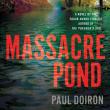Paul Doiron on the mysteries of the Maine North Woods
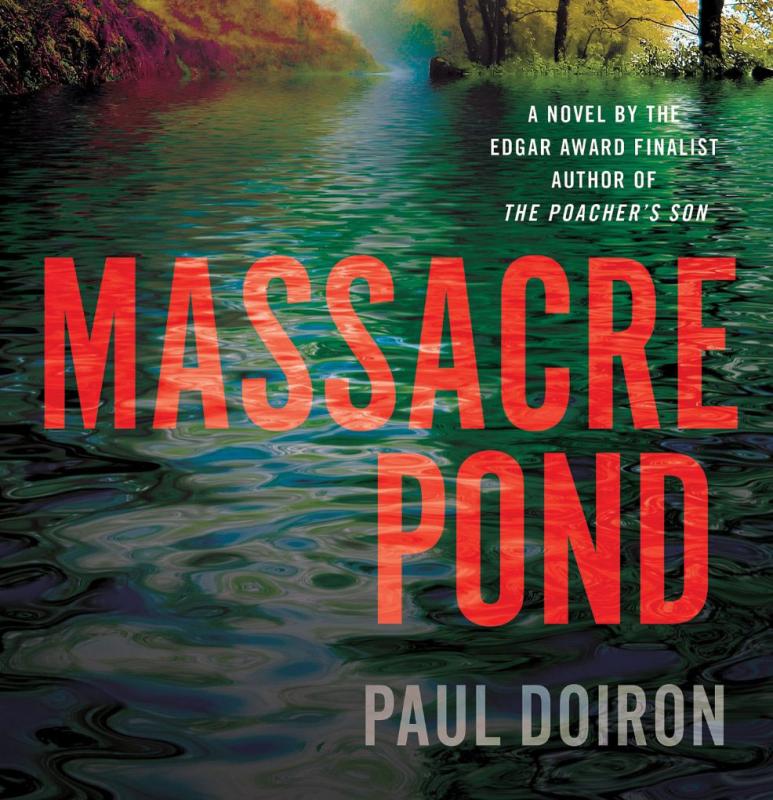 Massacre Pond, by Paul Doiron
Massacre Pond, by Paul Doiron
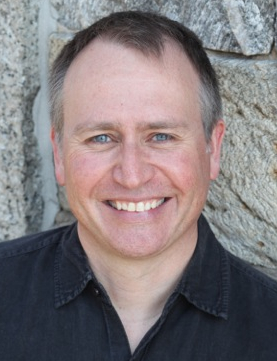 Photo courtesy Lori Traikos
Photo courtesy Lori Traikos
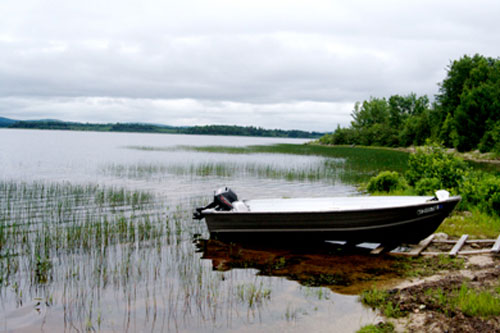 Fourth Machias Lake in Hancock County, presumably one of the real places mentioned in Massacre Pond (Courtesy David Gallagher/Flickr
Fourth Machias Lake in Hancock County, presumably one of the real places mentioned in Massacre Pond (Courtesy David Gallagher/Flickr
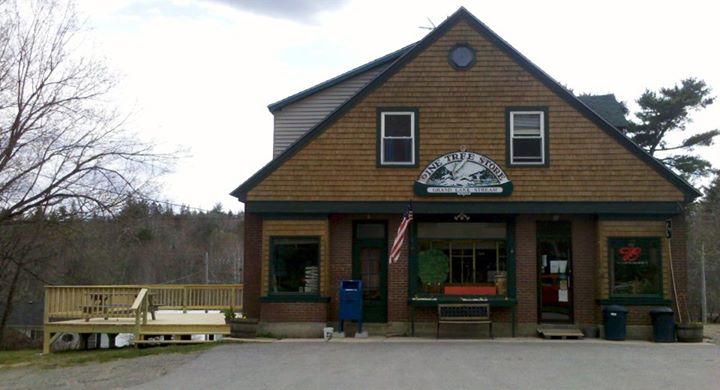 The Pine Tree Store is a real place in Grand Lake Stream. (Courtesy their Facebook page.)
The Pine Tree Store is a real place in Grand Lake Stream. (Courtesy their Facebook page.)
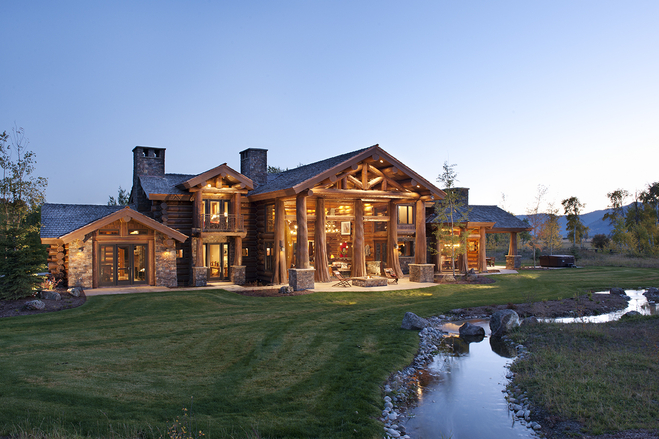 A luxury log cabin home that could very well be his character, Elizabeth Morse’s. (Courtesy WSJ.com)
A luxury log cabin home that could very well be his character, Elizabeth Morse’s. (Courtesy WSJ.com)
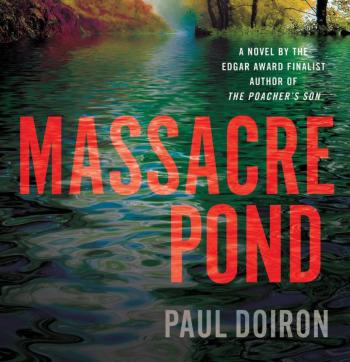 Massacre Pond, by Paul Doiron
Massacre Pond, by Paul Doiron
 Photo courtesy Lori Traikos
Photo courtesy Lori Traikos
 Fourth Machias Lake in Hancock County, presumably one of the real places mentioned in Massacre Pond (Courtesy David Gallagher/Flickr
Fourth Machias Lake in Hancock County, presumably one of the real places mentioned in Massacre Pond (Courtesy David Gallagher/Flickr
 The Pine Tree Store is a real place in Grand Lake Stream. (Courtesy their Facebook page.)
The Pine Tree Store is a real place in Grand Lake Stream. (Courtesy their Facebook page.)
 A luxury log cabin home that could very well be his character, Elizabeth Morse’s. (Courtesy WSJ.com)
A luxury log cabin home that could very well be his character, Elizabeth Morse’s. (Courtesy WSJ.com)
Paul Doiron’s Massacre Pond is his fourth book in a series of crime novels featuring game warden Mike Bowditch and is set in Washington and Hancock counties. He’s won multiple awards for his books including the Barry Award, Strand Critics Award, and the Maine Literary Award for crime fiction. Doiron, who is the editor-in-chief of Down East and is a Registered Maine Guide, lives in the Midcoast and and has been on a book tour all summer.
A summary of Massacre Pond follows:
On an unseasonably hot October morning, game warden Mike Bowditch is called to the scene of a bizarre crime in Eastern Maine: the corpses of 10 moose have been found senselessly butchered on the estate of Elizabeth Morse, a wealthy animal rights activist who is buying up huge parcels of timberland to create a new national park. What at first seems like mindless slaughter — retribution by locals for the job losses Morse's plan is already causing in the region— becomes far more sinister becomes far more sinister when a shocking murder is discovered and Mike's investigation becomes a hunt to find a ruthless killer. In order to solve the controversial case, Bowditch risks losing everything he holds dear: his best friends, his career as a law enforcement officer, and the love of his life. The beauty and magnificence of the Maine woods is the setting for a story of suspense and violence when one powerful woman’s missionary zeal comes face to face with ruthless cruelty.
We caught up with him to get a sense of where he culled his real-life material from.
Q: As a narrator, you good-naturedly rip into Maine caricatures with an equal-opportunity finesse; e.g., the New Age hippie; the rich, arrogant doyenne; the good ole boy gun-toting poacher; and the white Passamaquoddy wannabe. How have Maine folks both native and from away reacted to your characters so far?
A: Mainers seem to respond favorably to my characters since they recognize them as people we all know or have observed at country fairs or in grocery stores. One of the important things for me as a writer is communicating what it feels like to be in Maine, not just in term of describing the scenery but also capturing the distinctive subcultures you find around the state. I've had readers "from away" tell me that some of the characters strike them as grotesque. I always wish I could bring these people along with me while I'm doing my research. They'd realize how much I scaled back the eccentricities of real people I've encountered here.
Q: Your main character, Game Warden Mike Bowditch, seems to come down right smack in the center of a ripped-from-the-headlines controversy of the millionaire environmentalist character (*cough* Roxanne Quimby *cough*) and her desire for a "forever wild" national park vs. the loggers, sawmill workers, hunters, camp owners and others who've used the land for their own purposes going back generations. So, the million dollar question is, do you share Bowditch's neutral perspective, or do you personally come down one side or the other on the controversy?
A: The truth is that in order to decide how I felt about a North Woods National Park, I had to write an entire novel about it, which means that I don't have a succinct answer for you. That may sound like I'm avoiding the question, but it's a complicated subject. I did my best to grapple with all the pros and cons in the book, and I bet some readers will conclude I'm a proponent while others will be convinced I loathe the idea. I would have liked to see the Legislature fund a feasibility study of the park with as much urgency as they did with the East-West Highway. I mistrust people who are afraid of information. In general, I'd like to see more public land in Maine — although I'm more concerned by the dearth of coastal access here.
Q: Your setting is primarily the back logging roads, woods and lakes of Washington and Hancock counties. Did you spend a lot of time in this region researching the book?
A: For the past decade or so I've visited the Grand Lake Stream a couple of times per year. I have friends who own property up there who are pretty outdoorsy, and I've spent a lot of time in the bow of Grand Lakers, searching for mushrooms after rainstorms. People tend to think of the Maine Woods as one thing, but there are, in fact, many different kinds of woods — from Central Hardwood Oak Forest ecosystems to Coastal Plain Basin Swamp ecosystems. Each is distinctive and characterized by different species of trees and other flora, as well as other natural features. For instance, in Washington County, you have these amazingly huge glacial erratic boulders everywhere. Game wardens are closely attuned to the natural world, and I do my best in the books to suggest the differences they perceive as they range from one ecosystem to another.
Q: I read from one of your reviews that Massacre Pond was partly inspired by the unsolved 1999 "Soldiertown moose massacre," the worst wildlife crime in Maine history. Where did these original moose massacres happen and what was your theory on this unsolved case?
A: In 1999, guides and game wardens discovered the corpses of nine moose, two deer, and an eagle along logging roads northwest of Moosehead Lake. The animals had been shot with .22 rifles and left to rot where they'd fallen. It was a senseless slaughter, and people up that way are still angry about it. The wardens who investigated the massacre started from the presumption that the animals had been killed as an act of revenge against the Warden Service, but that doesn't seem to have been the case at all. The statute of limitations has run out and no one will ever be punished for the crime, but one warden, Mike Favreau, wouldn't let the matter rest. He kept asking questions, and eventually he identified two petty criminals from York County who had been staying at the Birches in Rockwood at the time who admitted to killing other moose while driving around at night and drinking. They deny that they committed the crimes in Soldiertown, but it defies belief to the think that there were other eco-vandals in the Moosehead region that same week.
Q: Can you tell us what real places inspired your character, Elizabeth Morse's log "mansion" called Moosehorn Lodge, the fictional local hangout "Pine Street Store," and the center of the book’s controversy, Moosehorn National Park?
A: The Pine Tree Store is a real place in Grand Lake Stream, and it's very much the hub of activity in the village. As a reader, I enjoy visiting locations I read about in novels (I did my own Hemingway tour of Paris, where I tried to find as many of the landmarks as I could from The Sun Also Rises and A Moveable Feast.) But as an author, I hate to feel constrained by insignificant details like whether there is a gravel pit in a certain place when I want to set a scene in one. I try to mix up real locations with my own creations. So there is no Sixth Machias Lake, for instance, or a Little Wabassus Lake. Moosehorn Lodge is based on a couple of very expensive lakeside homes I wrote about for Down East years ago when I was an associate editor assigned to the architectural beat. It also bears a slight resemblance to the El Tovar lodge at the Grand Canyon, where my wife and I honeymooned.
Q: How long have you lived in Maine and where are some of your favorite places to simply "be" in this state?
A: I'm a Mainer, and except for a few brief intervals when I lived out of state, I have spent my entire life here. Being the editor in chief of Down East has given me the license to explore just about every corner of Maine. (It's easier for me to name the towns I haven't visited as opposed to the ones I have.) I have many favorite places, including Washington County's Bold Coast. I've spent a lot of time in the forested mountains of western Maine, primarily between the Bigelows and The Forks, and feel at home in that part of the world. I love sleeping in a cabin in the woods on a rainy night. Monhegan during migration is another favorite destination, and the Scarborough Marsh, where I spent so much time as a boy fishing for striped bass.
As part of Rockland independent bookstore hello hello’s 2nd anniversary party on Saturday, Aug. 24, Doiron will be signing copies of Massacre Pond from 2-4 p.m. For more information, visit his Facebook page. To find out more about the book, visit his website.
• For archives of Real places in Maine that inspire literary fiction, visit Penobscot Bay Pilot's Pinterest page.
Kay Stephens can be reached at news@penbaypilot.com
Event Date
Address
United States






